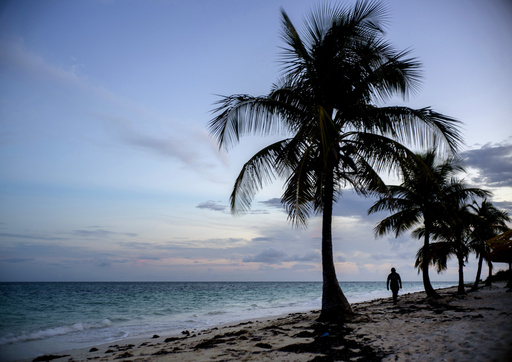
SAN JUAN, Puerto Rico — On Friday, The Bahamas revealed plans to refinance $300 million of its external debt, aiming to allocate more than $120 million toward marine conservation efforts and initiatives to combat climate change.
This marks the world’s fifth debt-for-nature swap, with the Bahamian government collaborating with The Nature Conservancy, the Inter-American Development Bank, and various financial stakeholders to finalize the agreement.
Shenique Albury-Smith, the deputy director for The Nature Conservancy in the Bahamas, expressed that this initiative not only promotes the country’s biodiversity and climate goals but also supports the economy and the livelihoods of countless individuals.
The arrangement includes repurchasing existing debt through a newly secured loan with lower interest rates, which is anticipated to release approximately $124 million in capital. This funding is earmarked for marine conservation over the next 15 years, and an endowment fund will be established to ensure financial support for ongoing projects after this period. Currently, The Bahamas is managing around $5.7 billion in external debt.
Other nations, including Seychelles, Belize, Gabon, and Barbados, have previously entered similar agreements, noted Melissa Garvey, global director for The Nature Conservancy’s bond program. Collectively, these agreements safeguard conservation territories that are larger in size than the Gulf of Mexico.
The new arrangement with the Bahamian government is unique as it involves a private investor providing a co-guarantee alongside a private insurer offering credit insurance, and it also integrates commitments focused on climate change mitigation, according to The Nature Conservancy.
Albury-Smith indicated that part of the funding will likely be directed towards the protection, restoration, and management of mangrove ecosystems, which effectively sequester carbon dioxide—outperforming even tropical forests in this regard. Additionally, there are plans to safeguard seagrass ecosystems that also play a significant role in capturing carbon dioxide and combating global warming.
Safeguarding marine environments is crucial for maintaining the viability of important commercial fisheries in The Bahamas, such as the spiny lobster industry, which alone yields about $100 million annually, Albury-Smith stated.
The Bahamas has a robust conservation legacy, with over 17% of its coastal waters protected, amounting to more than 6 million hectares (approximately 16 million acres) of oceanic territory. In 1958, the nation established the world’s first protected land and sea park at Exuma Cays, setting a precedence in conservation efforts.
